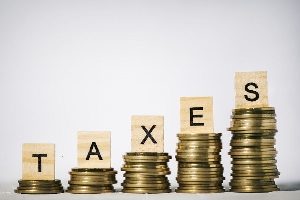 The study showed that Ghana’s revenue mobilisation system has an implicit gender bias towards women
The study showed that Ghana’s revenue mobilisation system has an implicit gender bias towards women
A new study has shown that Ghana’s revenue mobilisation system has an implicit gender bias towards women.
The study, titled, “Gender Analysis of Ghana’s Tax Regime” established that the tax system inherently discriminates against women, especially in the computation of income and corporate taxes, the granting of personal income tax reliefs as well as tax exemptions on earnings.
During a presentation on the findings, Dr. Gloria Afful-Mensah, a Senior Lecturer at the Economics Department of the University of Ghana, said it was important for the government to raise revenue domestically without unnecessarily overburdening the poor and vulnerable and widening gender gaps.
“Tax system influences consumption, savings and investment behaviour and even access to safety net. That is why it is important that the tax system is deliberately designed to not widen the gender gap in the system,” she said at a policy dialogue for parliamentarians and stakeholders on taxation and illicit financial flows.
It among other things showed that exemptions granted on Personal Income Tax (PIT) in the formal sector benefited men most since they dominated the sector.
On the other hand, there are no exemptions granted on PIT in the informal sector which is dominated by women.
The study also noted that within the agriculture sector, the exemptions granted to cocoa farmers disproportionately benefited more men than women who engaged in food production.
Study findings were based on analyses made on the implication of taxes on paid employment and consumption expenditure to the different gender groups.
For the study, direct taxes such as Personal Income Tax (PIT) and Corporate Income Tax (CIT) were considered as the paid employment taxes while excise taxes, fuel taxes, levies and Value Added Tax (VAT) constituted the taxes on consumption expenditure.
The theme for the event, organised by the Network for Women’s Rights in Ghana (NETRIGHT) was, “Advocating for Gender-responsive and equitable tax reforms to strengthen Ghana’s Tax system.”
She observed that the tax system was not designed to incorporate the reproductive work or caregiving role of women who at some point took a hiatus from working.
The system, she also said, did not take into account the different consumption patterns of men and women which ultimately showed that households with more female adults consumed more, than households with more male adults.
“The concern is that when you have gender-neutral policies or systems, they tend to perpetuate certain inequalities in the system,” she said.
Kwame Dzudzorli Gakpey, Member of Parliament (MP) for Keta, representing the African Parliamentary Network for Illicit Financial Flows, said addressing the implicit gender bias in the tax regime would demand a multi-faceted approach.
These, he said, include policy analysis and advocacy for reforms that promote gender equity; capacity building for policymakers, tax authorities, and civil society organisations to understand and implement gender-responsive tax policies; public engagement and education; research and data collection.